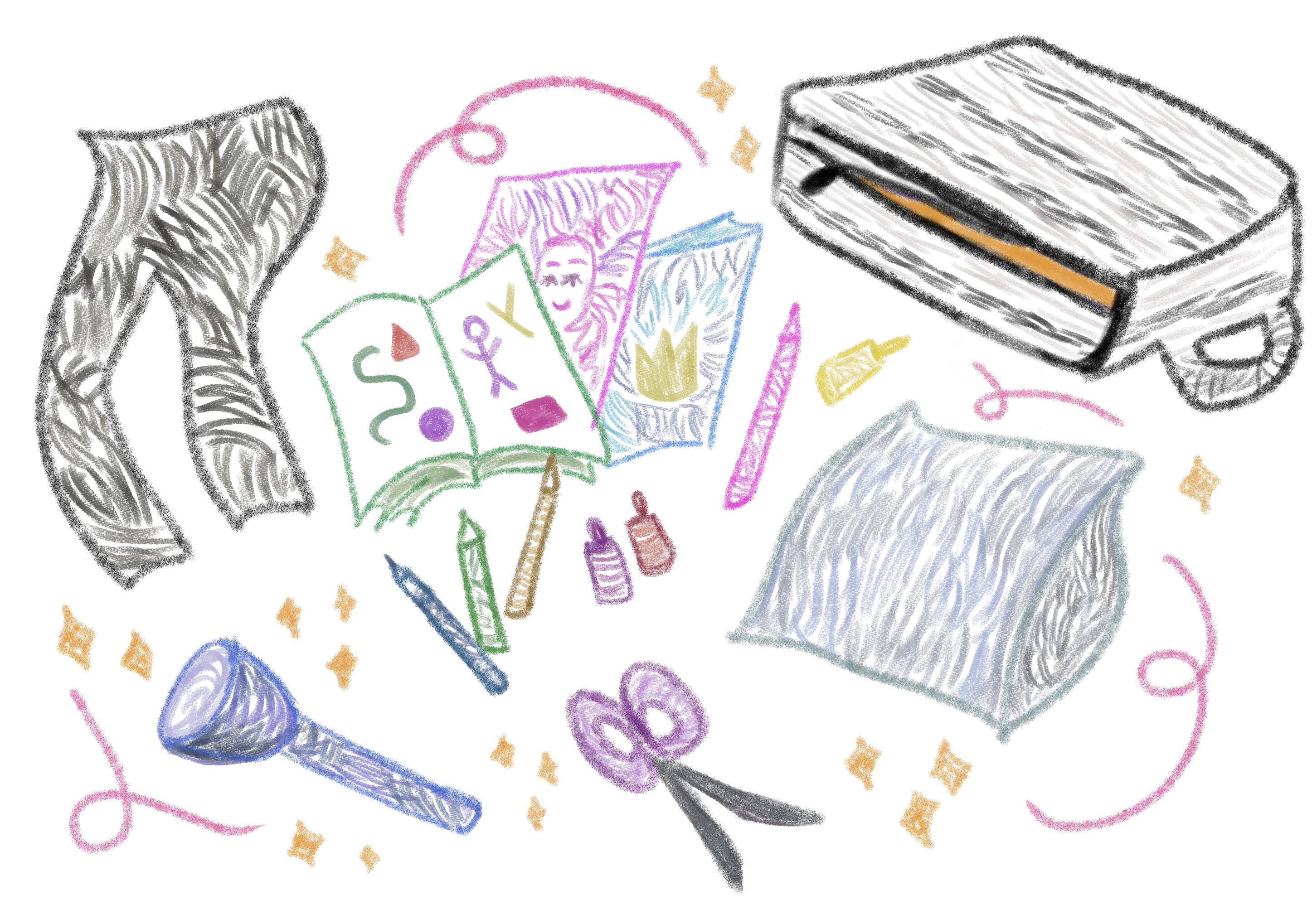Written by Neve Traynor
Graphic by Paris Robson
CW: Sexual assault and harassment, institutional betrayal. Support services are linked below.
As I drove past pavements full of people heading in a single direction, I knew this was going to be big. But I didn’t expect the sea of black that covered the lawns of parliament on Monday afternoon, a crowd so huge that half of us couldn’t even see the stage. We gathered along with tens of thousands across the country to March4Justice against the dangerous culture of sexism and violence in Federal Parliament.
Over the past few weeks, we have witnessed the perfect storm of media attention on a long-silenced issue. We’ve heard allegations of sexual assault concerning high-profile politicians and Parliament House staffers, as well as thousands of testimonies from high school students in Chanel Contos’ petition. The rape culture we live in has been publicly exposed, and survivors are finally seizing their chance to be heard.
The crowd was rightfully enraged – as exemplified by the shouts of “Shame” at the government and the demands of their placards: “Boys will be boys held accountable for their actions”, “He said, she dead”, “ScoMo, what would Jenny do?”, and the simple “Not happy, Jan” – but the atmosphere was fiercely optimistic and supportive. I felt a sense of relief that everyone here knew the problem, and everyone here would believe your story.
Organiser Janine Hendry curated an almighty line-up of speakers, including some of our very own brave peers from the ANU: Avan Daruwalla, Maddie Chia, and Madhumitha Janagaraja. We were reminded that the legal system is stacked against survivors, and that those with intersectional identities are the most vulnerable to sexual violence. Saxon Mullins, Director of Advocacy at Rape and Sexual Assault Research, called upon men to check their selective blindness: “One in five women have experienced sexual violence. Men, where do you think these perpetrators are hiding? They are your friends.” Saxon’s words floored me – these were words I often felt like screaming at men, and now they were booming over a microphone for all to hear.
Midway through speeches, the crowd was parted by an entourage of media. Necks craned to see who it was for, but our shoulders ultimately shrugged. Later, to our astonishment, journalist Lisa Wilkinson announced that Brittany Higgins was here to deliver a statement in person. The crowd exploded with emotion as Brittany took the stage, bravely standing in suffragette white before a blaze of media. The former Liberal staffer, who was allegedly raped inside Parliament House, was welcomed as the beloved hero of this gruelling past month. She spoke boldly about the traumatic management of her case by people in the government; those who are expected to set the standard for the rest of us. She urged survivors to speak up, to “take ownership of your story and free yourself from the stigma of shame”. Her story is a reminder that if it can happen in Parliament House – the so-called people’s house – it can happen anywhere.
While Labor politicians walked out of parliament to join the crowd, Scott Morrison refused his invitation and instead invited a handful of march organisers to meet with him in Parliament House. This offer was firmly rejected; as Hendry said, it wouldn’t do justice to the thousands of women attending the rallies if a few representatives met Morrison behind closed doors. Sheltered in the House of Representatives, Morrison told parliament that the protestors were lucky not to be shot: “not far from here, such marches, even now, are being met with bullets. But not here in this country”.
The March4Justice petition, demanding greater accountability over gendered violence, was eventually delivered on stage to Tanya Plibersek and Kristina Keneally with more than 94,000 signatures. When the rally ended, everyone dispersed in unison: people removed their ‘ENOUGH’ face masks, workers ended their lunch breaks, solidarity black became regular clothing, and there was a traffic jam on Commonwealth Avenue. Where would we go from here?
I didn’t have to wonder for long. The March4Justice organisers certainly won’t let this fire go out, and while we wait to join them in their next line of attack, Mondays at Midday – a weekly march around Parliament House from 12-1pm – will be kicking off from next week. The truth that was spoken and believed here should not be silenced everywhere else. We’re at a tipping point of change; let’s not stop the momentum. Share your stories, have conversations about sexism with people who don’t usually think about it, and call out the rhetoric and behaviour of rape culture. Enough is enough.
If you or someone you know requires support, please don’t hesitate to reach out to these services:
- Canberra Rape Crisis Centre: (02) 6247 2525, 7am-11pm, 7 days a week. Also available for in-person appointments at the ANU’s Acton campus.
- 1800RESPECT: 1800 7377328, 24/7. National Sexual Assault, Domestic Family Violence Counselling Service for people living in Australia.
- Lifeline: 13 11 14, 24/7. Lifeline is a national charity providing all Australians experiencing a personal crisis with access to 24-hour crisis support and suicide prevention services.
- ANU Crisis Support Line: Phone (voice calls only): 1300 050 327, SMS Text message service: 0488 884 170. 5pm-9am weekdays, 24/7 weekends and public holidays.
- ANU Counselling: (02) 6125 2442, 9am-5pm, Monday-Friday. Free and confidential counselling is available on campus for all currently enrolled ANU students, including ANU College students.






Leave a Reply